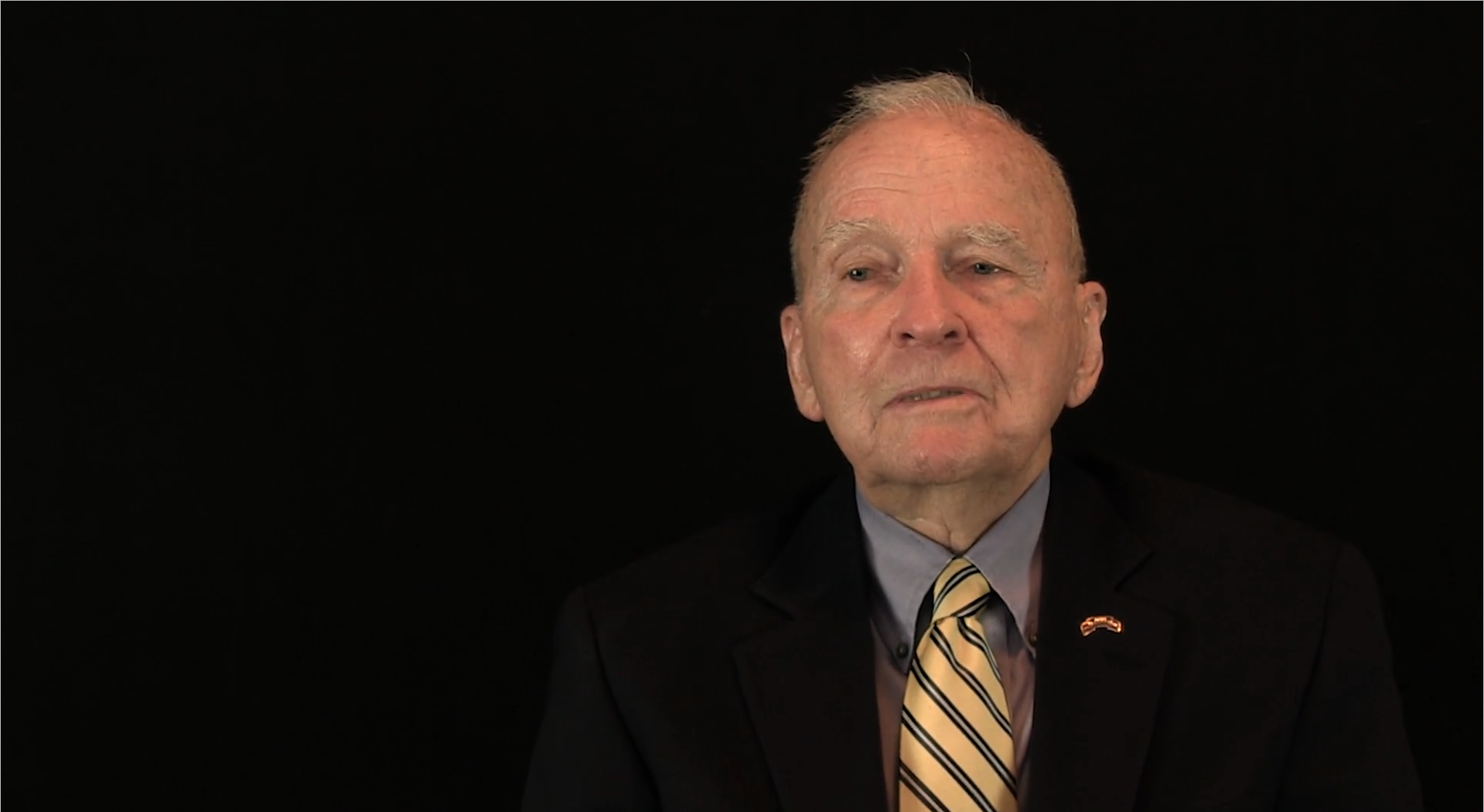12:28 | It was called Hill 205. The small Ranger company was told to take and hold the hill. They did that as long as they could but Ralph Puckett and his men had to go through hell to do it. Waves of Chinese attackers had him calling in very close artillery strikes. He lay there, unable to move after three wounds, watching the Chinese bayonet wounded Rangers. Then two figures charged up the hill. For his actions in this battle, he would be awarded the Medal of Honor.
Keywords : Ralph Puckett Korea Ranger Hill 205 Pusan Inchon 8th Army Yalu River Task Force Dolvin Douglas MacArthur Harry Truman Republic of Korea (ROK) Korean Augmentation To the United States Army (KATUSA) Barnard Barney Cummings artillery grenade Chinese whistle bugle mortar concentration flare bayonet Billy G. Walls David L. Pollack esprit de corps

After twenty two years of service, Ralph Puckett retired and had a successful private life, but it was inevitable that he would reconnect with his beloved Rangers. His talent at building confidence is put to very good use at the Ranger school.
What do men need in a leader? Ralph Puckett draws on his long experience to answer that and then relate it to today's challenges for the military. He notes that some mistakes are repeated and that perhaps, "What we learned is that we don't learn anything from our wars."
He wanted to be a military aviator, but West Point had no aviation program. Impressed by the infantry leaders he encountered, Ralph Puckett decided there would be no truer test of himself than to become a combat infantry officer.
He was at jump school when he heard about the North Koreans invading the South. Determined to get in the war, young 2nd Lieutenant Ralph Puckett was at a stopover in Japan when he was told to report for possible selection for a special Ranger unit. He found out that the officers were already selected but he made a pitch to get on the team as a rifleman if nothing else. Come back tomorrow, he was told.
We were unprepared for war when we had to fight one in Korea. Ralph Puckett should know because his job was to take a small unit of new Rangers into the country for dangerous missions. They arrived at Pusan where the American forces had just barely avoided being pushed into the sea.
Piano wire? Those Rangers want everything, groused the supply officer. When the volunteer company got into Korea, though, they only had the most basic cold weather gear. The first mission for company commander Ralph Puckett and his men was to rout North Korean stragglers and units left behind when they retreated Northward.
Both feet were severely injured so Ralph Puckett had some serious hospital time coming up. Evacuated from Korea to Japan, then back to Fort Benning, he could, at least, see his family. Then came a knock on the door and two pretty girls walked in. If only they knew what he had just told his father.
He already had a pretty significant career, but Ralph Puckett went to Vietnam as a battalion commander and didn't waste any time getting into the field. His first matter of business was to assure his unit commanders that he had their backs.
Battalion commander Ralph Puckett recounts the story of a night long attack by Viet Cong and NVA Regulars on a position held by one of his companies. He was grateful they had a Forward Observer to coordinate artillery support and helicopters for resupply, things he lacked in Korea. For his leadership during this attack, Puckett was awarded a second Distinguished Service Cross.
It was better to put men in the field and leave them there. That was the philosophy of Battalion commander Ralph Puckett in Vietnam, where some commanders inserted and then quickly withdrew their troops. When the operation was over, the reward was beer and steak and ice cream. Being prepared was very important to him and he illustrates that principle with a story about some soldiers who were not.
It was nearly time to go home and Ralph Puckett was trying to rally his successor's spirits while showing him around the battalion's operations. Rely on your experienced men, that was his key point. His homecoming was bittersweet because his father was very ill but he was joyous to be reunited with his wife and children.
Ralph Puckett had two homecomings, from Korea and Vietnam. The first was all joyous, the second bittersweet. Despite the anti-war feelings so prevalent at the time, he experienced gratitude and respect in public.
After suffering severe wounds in Korea, Ralph Puckett spent two years at the Ranger Department in various training assignments. Then he went to a command assignment in Puerto Rico, a "go to war" company. He was given the job of setting up a short orientation school, experience that would help him on his next assignment.
It was an interesting assignment. Help the Columbian Army establish a Ranger training school and get it going. Ralph Puckett built up the program from nothing and he knew it was going to be very good, but he did have one problem, what to call the Columbian Rangers?
Ralph Puckett's favorite tour was the three years he spent in Germany with a Special Forces Group. He had his family there and the Ranger learned a lot from the assignment. It was early on for Vietnam, but he heard stories and began reading up on it. Back in the States in a Pentagon job, he asked to be put on the list to go.